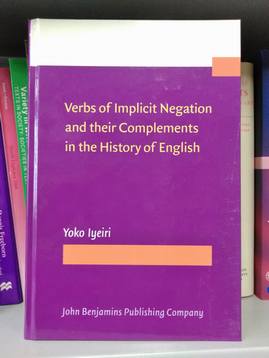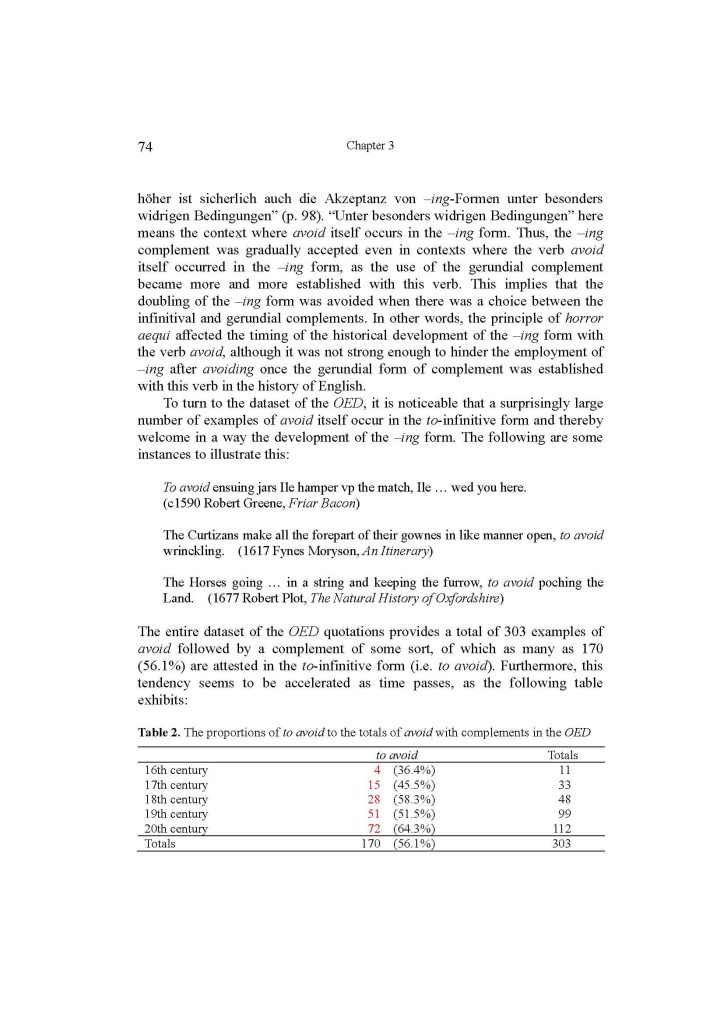Yoko Iyeiri, Verbs of Implicit Negation and their Complements in the History of English (John Benjamins, 2010)

xv + 223 pages
This books describes the eleven English verbs forbid, refuse, forbear, avoid, prohibit, prevent, hinder, refrain, fear, doubt, deny and their complementation from the historical perspective. The verbs have experienced the decline of that-clauses and the rise of various complement forms in the history of English. They are grouped into those that have developed to-infinitives, those that have developed gerundial constructions with or without prepositions, and those that have developed parenthetical constructions. With a number of verbs, a major shift of complementation took place from Late Middle English to Early Modern English, while the subsequent changes that took place with them in the Late Modern English period are also important.
Book Information (John Benjamins)
Note (20 March 2023)
There were some errors in statistics on p. 74 of this book, which have been corrected. See the following image where the correct figures are shown:

The following is the list of contents of this book.
Contents
Preface and acknowledgements
Abbreviations
List of tables and figures
- Introduction
- Verbs of implicit negation and to-infinitives
- Verbs of implicit negation and gerunds
- Verbs of implicit negation and gerunds with prepositions
- Verbs of implicit negation and subordinate clauses
- Summary and conclusions
Appendix
References
Index
Related publication
- Iyeiri, Yoko. 2003. “‘God forbid!’: A Historical Study of the Verb forbid in Different Versions of the English Bible”. Journal of English Linguistics 31: 149-62.
- Iyeiri, Yoko. 2011. “Early Modern English Prose Selections: Directions in Historical Corpus Linguistics”. Memoirs of the Faculty of Letters, Kyoto University 50: 133-199. (Downloadable PDF) — This paper includes an analysis of the complementation of forbid in the Early Modern English period.
- Iyeiri, Yoko. 2017. “Recent Changes in the Use of the Verb forbid“. Memoirs of the Faculty of Letters, Kyoto University 56: 195-218. (Downloadable PDF)
